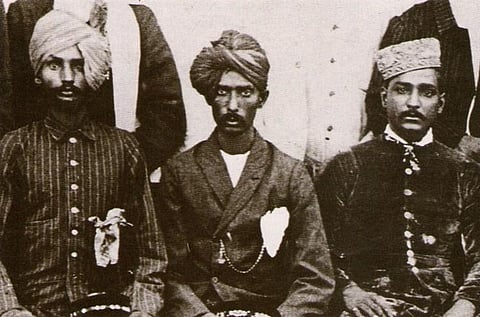Ustad Abdul Karim Khan, the revolutionary of the Kairana Gharana of Indian classical music, was employed by the Gaekwards in their court for his unparalleled musical brilliance. Bhimsen Joshi had stated that the reason he pursued Indian classical music was the Ustad himself. His children, Hirabai Barodekar, Sureshbabu Mane and Saraswati Rane were eminent musicians of Kairana Gharana, after him. Even after the independence of India, Karim Khan and his Kairana gharana's legacy carried on and spread through India. Kairana gharana came to be known as the perfect amalgamation of the music of the north and the south.


